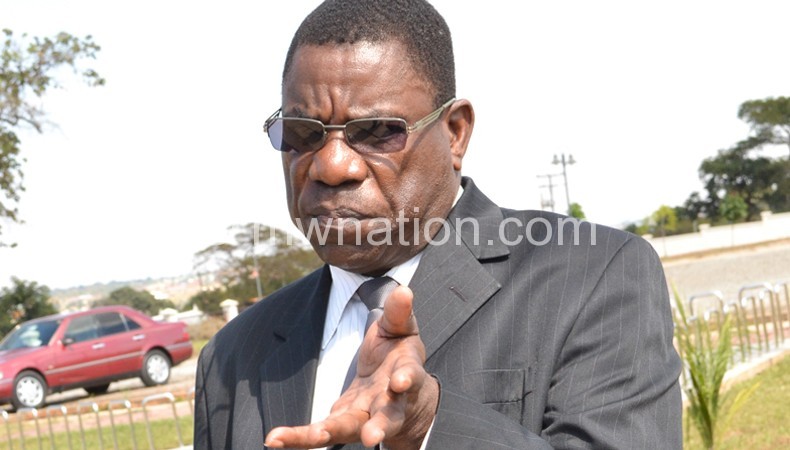Malawi defends reforms in public sector
Secretary for Public Sector Reforms Management in the Office of the President and Cabinet Blessings Chilabade says Malawi Government has been implementing public sector reforms since independence, but there is little to show of the tangible progress the reforms have brought.
According to Chilabade, the reforms can be categorised into three generations: 1964 to 1980; 1980 to 1990; and the advent of multiparty political democracy in the early 1990s to the present day.

In 2002, Public Sector Reforms Programme (PSRP) was designed, as Malawi’s Strategic Framework for Public Sector Reforms, with its focus on strengthening the coordination and leadership capacity of public reforms in public sector institutions.
He said this in response to a questionnaire that PSRP was reviewed in 2005 to enable it focus on current political context and to strengthen the capacity of the public sector to implement priorities of the Malawi Goal Development Strategy (MGDS).
But Consumers Association of Malawi (Cama) executive director John Kapito said recent reforms of 2002 and the 2005 review of the reforms have brought nothing tangible to point at.
Kapito said: “In fact what I see is a deformed civil service, not reformed. Politics has destroyed everything. The 2002 reforms, which were coming towards the 2004 elections, were targeted at getting rid of some individuals the government of that time United Democratic Front (UDF) was not happy with.
“So too were the 2005 reforms review, they were also targeted at individuals because the Democratic Progressive Party (DPP) government faced a lot of challenges because it inherited an administration they thought was against them and government moved around people and dismissed some.”
However, Chilabade said the 2005 review revealed gross weaknesses in the management of reform programmes under the then institutional arrangement, leading to: partial and selective implementation and, therefore, partial achievement; focus on short range benefits instead of long range; fragmentation of reform initiatives, leading to dismal impact; lack of direction in implementation of sub-sector specific reforms, among others.
He said following the review findings, a decision was made in 2006 that a unit called Public Sector Reforms Management Unit (PSRMU) be established, within OPC, to coordinate all Public Sector Reforms, for the development of a modern and efficient public service.
PSRMU, said Chilabade, was mandated to provide strategic leadership in public service reform planning and management; and to develop strategic linkages among various reform initiatives in the public sector and institutions that drive them.
But despite such plans, challenges such as failure to build and sustain a common understanding of the reform agenda among various stakeholders have remained.
Chilabade said the unit has facilitated various Business re-engineering processes in various ministries, departments and agencies (MDAs) that have led to improved service delivery.
The PS said the unit has also facilitated the reduction in the number of days to register a business entity to promote foreign direct investment, facilitated restructuring of MBC to include functions of TVM to achieve efficiency in service delivery and facilitated de-linking of Bunda College of Agriculture from Unima to achieve efficiency in service delivery.





